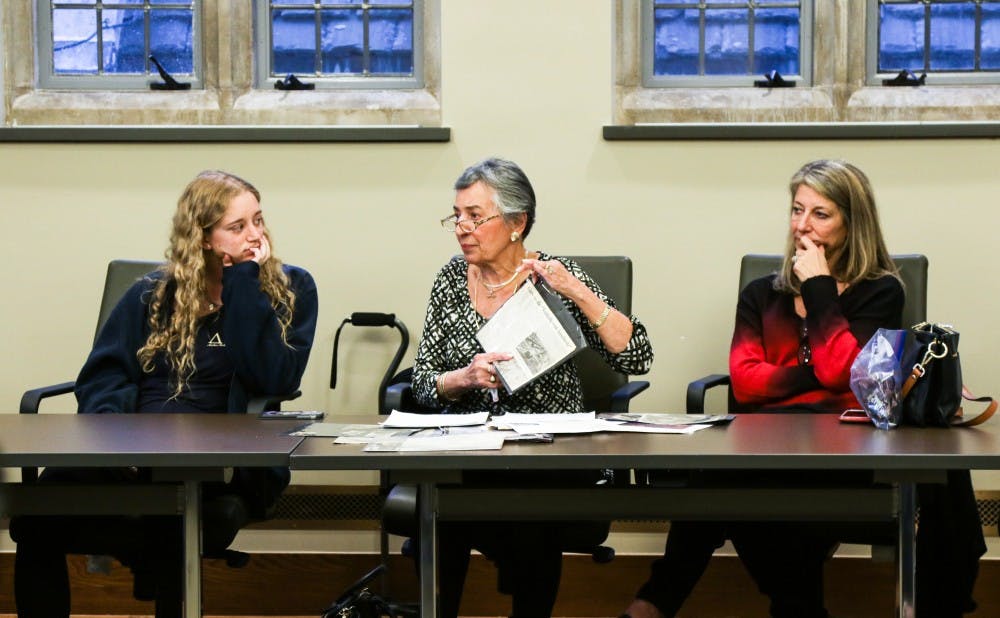Holocaust survivor Helga Luden—the grandmother of first-year Lucy Greenwald—shared her traumatic memories Thursday evening, noting that she was one of the lucky ones.
During the talk in the Rubenstein Library hosted by the Coalition for Preserving Memory, Luden revisited her childhood as she spoke to approximately 40 students about her experience growing up in Germany before and during the Holocaust.
“I relive these memories over and over again. Sometimes I want to, and sometimes I don’t,” Luden said. “But it’s so important for young people to hear this.”
Born in 1934, Luden said that she grew up in a German town called Ulmen—where she and her family were the only Jews—until 1939 when her father was arrested by the Nazis. There was a surge of anti-Semitism in their town at the time, particularly among the German youth, she noted.
“Anti-Semitism was quite visual—you could see, you could smell it,” Luden said, recalling that people broke the windows of her parents’ inn.
“One day someone goes and throws stones in our windows. We don’t know who it was,” Luden said. “It is something I will not forget—our windows were smashed.”
After her father was released, Luden explained that her family left the town and started to “wander” in search of safety. However, she said that her family was ultimately caught and sent to separate camps—her father went to a concentration camp while she and her mother were shipped to a camp known as Gurs in southwest France.
Each night at the camp, her mother instructed her to dig a hole beneath the barbed wire fence surrounding the barracks, Luden said. When the hole was big enough for her to climb through, her mother told her to escape, sending her off with the instructions “don’t tell anyone that you’re Jewish” and “remember who you are.”
Once she left the camp, Luden said she was found in the woods of France by French-Jewish partisans who took her to a convent before transferring her to an orphanage. While at the orphanage, she was reunited with her mother.
“I’ve had a lot of mazels [Yiddish for luck]—a lot of luck in my life, there’s a God above that watches,” she said.
Her luck continued when she and her mother were later reunited with her father on a boat that was leaving Europe.
“It has a happy ending, and I’ve had a lot of luck since then too,” Luden said.
The Luden family initially tried to enter the United States, but their boat was not allowed to dock, so they went to the Dominican Republic. After living there for several years, they migrated to the U.S. where she later met her husband.
When asked if she would ever return to Germany, Luden said she does not consider it, noting that there is no one left there who would know her.
The talk ended on a somber note, as Luden explained that she continues to relive the trauma of her experiences as she witnesses the “terrible” and “outrageous” acts of anti-Semitism happening today in the United States.
"We ought to help each other," Luden said. "What difference does it make? We’re all human beings."
Get The Chronicle straight to your inbox
Signup for our weekly newsletter. Cancel at any time.

